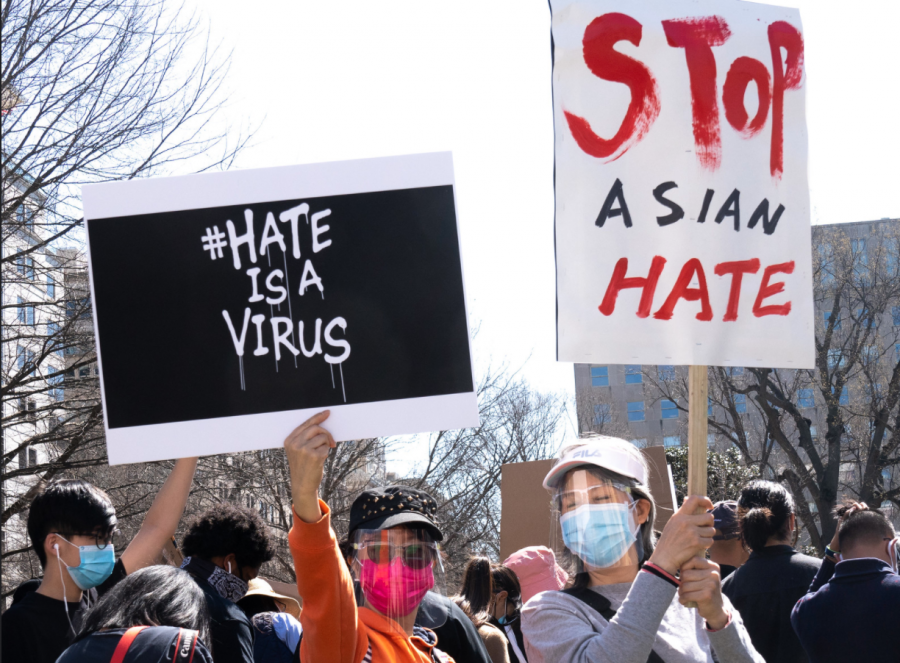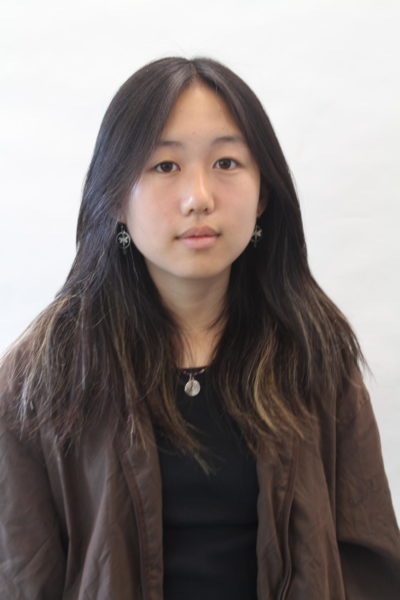Menlo Community Reacts To Increase In Anti-Asian American Hate
People gather in McPherson Square, D.C. to protest against anti-Asian American attacks and hate. Creative Commons photo: Victoria Pickering on Flickr.
June 1, 2021
Within the past few months, there has been a rise in coverage of anti-Asian American hate crimes in the media, and organizations fighting Asian American hate are becoming more prominent. There have also been several local protests in the Bay Area where hundreds of people have gathered to protest Asian hate, according to The Mercury News.
According to a study conducted by the Center for the Study of Hate and Extremism at California State University San Bernardino, hate crimes against Asian Americans in the 16 largest American cities rose by 149% in 2020. Additionally, anti-Asian American hate has become more prevalent in the Bay Area. According to KQED News, there have been 700 hate crimes reported by Asian Americans living in the Bay Area during the pandemic.
Asian Affinity Alliance student leader Egan Lai believes that there are several causes for the recent increase of anti-Asian American bias. “I think the onset of the COVID pandemic and the rhetoric used by [Donald] Trump and other politicians […] is one of the primary reasons for the increase in violence. However, I do believe it is disingenuous to blame it all on Trump, as anti-Asian hate is deeply rooted in American history and culture,” Lai said. “While it is important to recognize Trump as an instigator, we must also look at America’s history of anti-Asian violence and the consistent erasure of our people in the media.”
Lai believes that the increase of violence against Asian Americans has caused some in the Menlo community to experience a sort of culture shock. “I would say [the rise in violence against Asian Americans] has caused a bit of a cultural shock […] I do not think [the Menlo community] expected to find Asians to be victims of such hate, and especially since Asian American history is pretty much missing from the history we learn,” Lai said.
Junior Shannon Li, a member of the Asian Affinity Alliance, also believes that Trump’s rhetoric, like “Chinese virus” and “kung flu”, has been a factor in the increase in anti-Asian American hate. Nonetheless, she believes that pre-existing bias towards Asian Americans has also contributed. “People have told my brother to go back to China, people […] have called my brother and [me…] ‘dog-eater,’ ‘cat-eater,’ just stuff like that. And I think when you have so much hate and you dehumanize Asian people to that extent, it’s very easy to see how it escalated into hate crimes,” Li said.
Li has also found that the rise of anti-Asian American hate has impacted her daily life. “You know, I feel like there has been a really big spike in anti-Asian rhetoric lately. I’ve heard things like bat-eater,” she said. “Whenever [my family and I] go to San Francisco, there’s been a ton of hate crimes […]. My parents don’t even speak Chinese to us anymore. We just speak in English because we don’t want to get targeted for, like, being Chinese.”
Like Li, freshman Tate Lee believes that several factors contribute to anti-Asian American hate, one of which is a pre-existing anti-Asian American bias. “I think Asian American violence has recently surged due to the COVID-19 pandemic, but [it] has been occurring and overlooked for the past decades. […] In the Bay Area, Asians aren’t seen as a minority who have dealt with and continue to deal with oppression, but instead are assumed to be passive, which makes us easy and desirable targets,” Lee said.
Lee believes that the Menlo community can prevent anti-Asian American hate. “I think the Menlo community can fight this issue by continuing to [denormalize] these aggressive acts of racism and take meaningful action […]. I hope that the Menlo community can be aware of the steps they are taking so that change doesn’t become stagnant,” Lee said.



